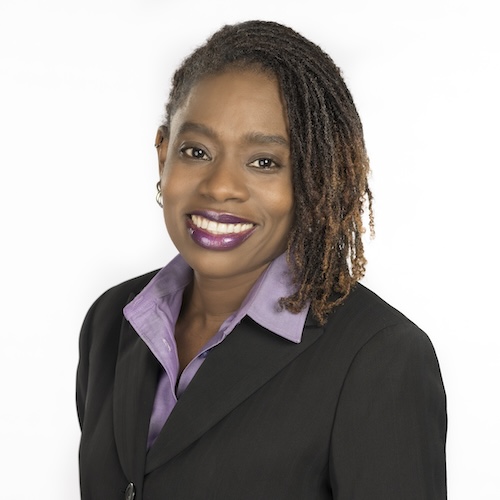8 minutes
A Q&A with United Nations FCU about how sustainability and diversity efforts are both key factors of the credit union’s strategy
Carlene Alexander, VP/DEIB & global diversity officer at United Nations Federal Credit Union, is responsible for using a DEIB lens to develop and implement its workforce, workplace and marketplace initiatives. The $8.9 billion New York City-based financial cooperative aligns its corporate social responsibility with the UN Sustainable Development Goals. UNFCU recently achieved several significant wins in sustainability, including the launch of a Supplier Diversity program.
We recently caught up with Carlene Alexander, who spoke about why diversity, equity, inclusion and belonging stands front and center in UNFCU’s sustainability push.
Q: How does UNFCU define sustainability?
At UNFCU, sustainability is an extension of our service mission. It means protecting our planet, developing an inclusive workforce, and forming partnerships with organizations dedicated to overcoming poverty. Making a positive impact now and for future generations is more than our responsibility—it is embedded in who we are. As the credit union that serves the UN community globally, we are committed to building a better more just world. We are pleased to share this work in our impact reporting.
Q: How are sustainability and DEIB part of UNFCU’s strategy?
Sustainability is woven into our strategy and the way we do business. It’s a lens through which we make all strategic decisions from developing financial solutions and our business operations to our staff development practices and supplier-diversity program.
Sustainability, a core value, is well-integrated into UNFCU’s annual and quarterly strategic planning activities to keep impact front-and-center. We track advancement towards company goals related to corporate social responsibility and other departments quarterly and incorporate it into our yearly corporate scorecard.
Our senior leadership team actively engages in setting and implementing climate and sustainability goals. Each UNFCU business line is represented in our stakeholder group.
Our leadership is also dedicated to supporting and creating a more inclusive workplace. As a result, we’ve built a strong culture across UNFCU globally that is focused on DEIB. We are thrilled to have had a direct impact on advancing 14 of the 17 UN sustainable development goals last year through the integrated work of our four pillars: DEIB, our Global Sustainability Program, the UNFCU Foundation and our Volunteer Program. In addition to aligning with the UN goals, UNFCU is a member of the UN Global Compact, the world’s largest sustainability initiative, as well as the Women’s Empowerment Principles, led by UN Women.
Q. What led the organization to adopt a holistic approach with DEIB as part of your overall sustainability program? Why the link?
DEIB and sustainability are inherently intertwined, as inclusive practices amplify innovation, stakeholder engagement, equitable resource allocation, resilience and social justice—all pivotal elements in constructing a sustainable future. UNFCU recognizes that sustainability and DEIB are symbiotic, requiring cohesive collaboration to propel the organization’s CSR strategic objectives. DEIB stands as an indispensable cornerstone in effectively attaining any sustainability objectives, whether developing a program to help minimize our carbon footprint or a green product or service that will be beneficial to our members and communities.
Q: What are a few practical steps credit unions can take to integrate DEIB into a broader approach? How can they get started?
Integrating DEIB into a comprehensive approach involves the following three steps:
- Gaining a thorough understanding of your organization’s current state.
- Assessing your organization, which establishes a baseline, providing insights necessary for setting achievable goals that align with the organization’s vision.
- Once this baseline is established, practical steps can be taken to foster integration.
Start by reviewing and updating internal policies to ensure they reflect and promote DEIB across all organizational levels. At UNFCU, we focused on hiring practices, fostering inclusive workplace cultures and addressing any systemic barriers that hindered equal opportunities.
Another example, through our Volunteers Program (particularly the work of our CSR Champions and Business Resource Groups), we forged partnerships with community organizations serving diverse populations, such as minority-owned businesses, immigrant support groups and LGBTQ+ advocacy organizations. We made it a point to collaborate on initiatives that specifically address community needs, amplify diverse voices and foster meaningful connections in our Long Island City neighborhood and international representative office locations.
Q: What’s been UNFCU’s progress so far with the integration of DEIB into sustainability? What are employees saying? What’s been your board’s reaction?
Our DEIB program is seamlessly integrated into our sustainability initiatives, embodying an ongoing commitment to progress. At UNFCU, our CSR Advisory Council plays a pivotal role in overseeing program governance, ensuring strategic goals remain at the forefront, and fostering accountability throughout our endeavors. We firmly believe in the adage that what gets measured gets done, and this principle guides our actions.
As for progress, 68% of our workforce actively participates in volunteerism for DEIB and GSP. A shining example of our integrated approach is evident in our Supplier Diversity initiative. Here, members of BRGs collaborated to establish a dedicated task force. Working closely with stakeholders across our organization and partnering with our environmentally focused GSP team, they’ve implemented robust policies and procedures for supplier diversity. Currently, these teams are diligently crafting metrics to ensure the program’s effectiveness. More information will be available in our forthcoming impact report.
Transparency and accountability are paramount. We report progress to our board comprised of active and retired UN staff who are especially committed to practicing sustainability. UNFCU board governance mandates that our members have confidence that the credit union conducts its business in a socially responsible and sustainable manner consistent with the United Nations Sustainable Development Goals.
Our management regularly provides updates on the goals established by our organization to advance our collective DEIB and sustainability objectives. This comprehensive approach reflects our unwavering commitment to driving meaningful change and positive impact within our organization and the global community we serve.
Q: How did UNFCU’s Supplier Diversity program get started? Were there any challenges?
UNFCU’s Supplier Diversity program was born from one of our strategic DEIB goals. We prioritize continuous evaluation of our organization and remain attuned to innovations and shifts within our communities. Through this ongoing learning process, we identified an important need. We invited BRG volunteers to participate in shaping and implementing this initiative actively. Their involvement not only provided valuable development opportunities for our staff but also facilitated the engagement of multiple stakeholders throughout the organization. Together, we collaboratively developed policies and executed plans for our Supplier Diversity Policy and guidelines to embed diversity within our supply chain. This not only fostering an inclusive ecosystem that benefits not only UNFCU, but also the communities we serve. We now create opportunities for underrepresented groups (women, minorities, LGBTQ+, veterans) in our communities to grow their business by presenting opportunities to engage with UNFCU.
However, we recognize the challenges posed by budget constraints when engaging small and minority-owned suppliers. While we strive to prioritize diversity in our procurement processes, we acknowledge that sometimes, the financial gap may be significant. In such cases, we remain committed to supporting these suppliers in developing efficiencies that align with our budgetary constraints. This commitment ensures that while immediate engagement may not be feasible, we work collaboratively towards future alignment, fostering sustainable partnerships that drive positive change.
Q: UNFCU co-hosted the 6th Annual United in Sustainability Summit for credit unions to become more informed about all aspects of sustainability. Why was it important to bring in conversations on DEIB?
DEIB is a primary component of sustainability efforts. This drives innovation, fosters resilience, promotes social justice and equity, and secures stakeholder support. It’s imperative to recognize that DEIB and sustainability are not fleeting trends; instead, they are essential practices crucial for our bringing in new perspectives and ideas to shape the direction of our organization.
By integrating DEIB principles into sustainability practices, organizations and communities can actively strive toward a more just, equitable and sustainable future for all. This integration is not only necessary, but also represents a moral imperative and strategic necessity in our ongoing journey toward a more inclusive and thriving global society.
Q: Will you feature DEIB at this fall’s UIS Summit in New York?
Yes, we will definitely continue to spotlight important DEIB conversations. Last year, we gained perspective from the National Credit Union Administration, Credit Union National Association (now America’s Credit Unions), The Center for Workforce Inclusion and the National Association of Latino Credit Unions & Professionals, among other notable experts. We’re happy to receive DEIB topic and speaker proposals for our 2024 UIS hybrid Summit in New York this fall via email at info@uisnetwork.org.
Q: You’ve said that sustainability is all about building a better, more just world now and for future generations. Are you hopeful that DEIB will be here to stay as part of this work?
Yes, we firmly believe that DEIB stands as a fundamental element essential for the continued success of both our organization and society. DEIB stands alongside sustainability as a key pillar. It is not just a concept, but also a driving force behind moral imperatives, legal frameworks, business strategies and societal norms. Together, they shape our response to changing demographics, evolving social norms and the values of successive generations.
Credit unions that embrace the enduring significance of DEIB and sustainability position themselves for success in an increasingly diverse and interconnected world. We’ve seen this through our strong staff retention rates and engagement, which have led to high levels of productivity and even greater understanding of the needs of our diverse membership. By recognizing and prioritizing these principles, financial cooperatives not only foster inclusivity and equity, but also cultivate resilience and innovation. This holistic approach not only benefits the organization but also contributes positively to the broader community and the world at large.
VP/DEIB & Global Diversity Officer Carlene Alexander, a CUES member, is responsible for providing strategic direction, managing and implementing diversity, equity, inclusion, and belonging programs globally at $8.9 billion United Nations Federal Credit Union, Long Island City, New York.






